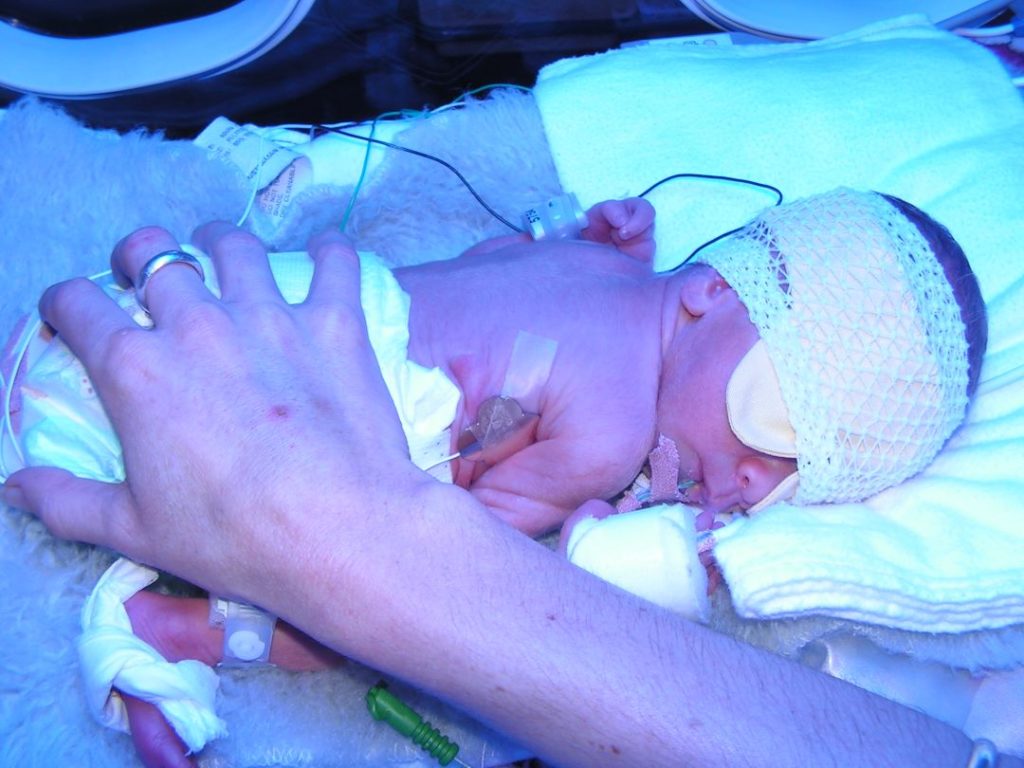It is a frightening experience when a baby is born prematurely. Parents describe a terrible fear of not knowing if their baby (or babies) will survive birth. After birth, the baby may be seriously or even critically unwell, and the family are suddenly facing an uncertain future.
For the mother, the pregnancy is felt to be over too soon. The birth becomes a medical emergency, which means foetal monitoring, a crowd of busy hospital staff in attendance, noises, bright lights, rapid decisions about intervention and a loss of control. Most women lament that this was never their plan. Women often describe feeling overwhelmed, afraid, and powerless.
Fathers and partners often describe feeling powerless too, unable to do anything to stop their partner’s pain or the terrifying events from unfolding. The horrifying possibility suddenly exists, that they may lose their partner, child, or both. And these frightening things cannot be un-seen. Once the baby is born, fathers often speak about feeling torn between their partner in the birth suite, and their new baby who is being taken away to the nursery.
After delivery, the sight of their premature baby can be confronting. Not the cherubic, chubby, pink newborn on social media. Fragile, tiny, and vulnerable. The baby is now separate, suddenly outside the protection of the womb, held in a plastic crib. The baby is also likely to be intubated and connected to monitors, adding to their strange and almost alien like qualities. Parents are often confused by the intensity of their contradictory feelings towards their new baby. Feelings such as fear, joy, sadness, anger, and disbelief can all co-exist.
Many parents also speak about the shock of entering the Neonatal Intensive Care Unit (NICU) for the first time, how it is like landing on a new planet, where they need to rapidly learn the rules and language of the neonatal unit. It is here that the parents must also get to know their baby. Parents must work out what their role is with their baby, within the routines of the hospital, and dependent upon the health and abilities of their infant. The couple must also work together and transition to becoming parents together (perhaps for the first time or as parents to a larger family with more complex demands). Their relationship and concept of family must expand to include the new baby, as well as the medical team.
In some situations, the newborn may be transferred to a paediatric intensive care unit (PICU) at another hospital, because of illness. It is particularly difficult for families of multiples where babies need to be cared for in different hospitals. Not all infants are admitted to the NICU, some are admitted to lower-care beds in the Special Care Nursery (SCN), depending upon the relative health and stability of the baby.
Summary
The birth of a preterm infant typically launches families into a state of crisis. It is a challenging period characterised by intense emotion and rapid change, parents have much to learn and adjust to in this new environment. Preterm birth typically also turns parental expectations of birth and early parenting on their head. Both parents benefit from support getting to know their baby and being acknowledged in their role as parents, whilst they adjust to their new reality.
This is the first in a series of blog articles discussing some of the emotional and psychological experiences associated with preterm birth. According to the Australian Institute of Health and Welfare in Australia in 2017, 8.7% of all babies were born preterm (<37 weeks gestation). Of this group, 81% were born between 32 and 36 completed weeks, which means 19% were born very preterm. These articles are intended to support psychologists, and other professionals, obtain a deeper understanding of some of the issues faced by families following preterm birth.



